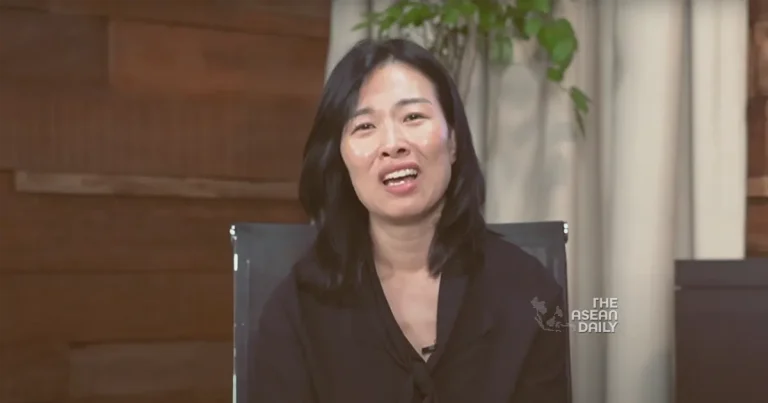10-3-2024 (JAKARTA) In a compelling narrative that has gripped global netizens, Amy BMJ, a South Korean mother of four, is embroiled in a poignant battle for her right to be with her children amid a scandal involving her Singaporean husband, Aden Wong, a former senior executive at DP World.
The unfolding saga began when allegations surfaced regarding Wong’s extramarital affair with the controversial Indonesian singer Tisya Erni, a personality previously in the limelight for less-than-favourable reasons. What started as private turmoil has now escalated into a public outcry, leaving Amy without her children, with many speculating about the influential Singaporean’s manoeuvres.
Amy, sharing her distress through TikTok, has unwittingly become the face of a broader discourse on power dynamics within marital disputes and parental rights. The overwhelming response on social media stands in contrast to the silence from Singaporean outlets, hinting at a reluctance to address the potential misuse of power.
Netizens swiftly highlighted the importance of a mother’s presence in a child’s early stages, emphasizing the critical role only a mother can provide in nurturing development. A National University of Singapore graduate and a contributor to the family’s finances, Amy has expressed a desire for amicable co-parenting. However, her appeals seem to have fallen on deaf ears, leaving her facing the harrowing reality of being estranged from her children’s lives.
The children, central figures in this emotional drama, are currently under the care of their father, Aden Wong. Despite an appearance of normalcy, the abrupt separation from their mother, especially for the youngest—an infant at the time of separation—raises profound concerns about their emotional and psychological well-being. The developmental need for a mother’s care in the early years is not just a cultural axiom but is grounded in a wealth of psychological research, supporting the unique role of maternal bonding in a child’s growth.
Amy’s narrative, as depicted on social media, portrays a mother forcibly distanced from her offspring, with her youngest child particularly vulnerable due to their tender age. The distress caused by this separation is immeasurable, and while the father may provide for their material needs, the absence of their mother’s affection and nurturing is an irreplaceable loss.
Public discourse now focuses on the well-being of these young souls caught in the crossfire of adult conflicts. Advocates for Amy’s cause argue that the children’s preferences, while important, must be weighed alongside the consideration of their long-term emotional health, intricately tied to the presence of both parents in their lives. The outcry for Amy’s reunion with her children is not just a matter of legal rights but a call for compassion and understanding of the intrinsic bond between a mother and her children, which many fear is being eroded in this distressing separation.




